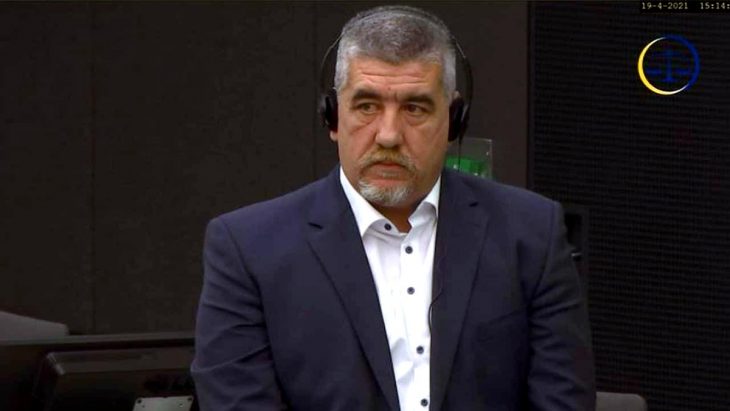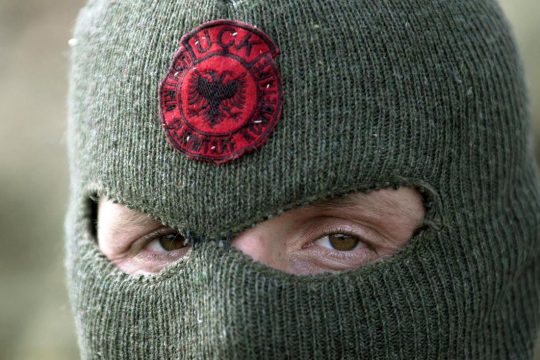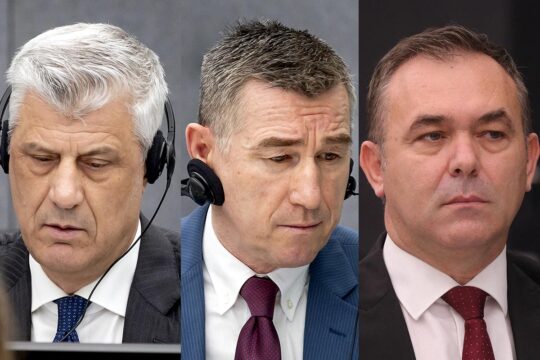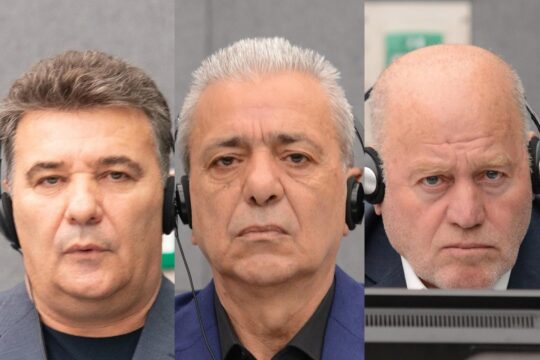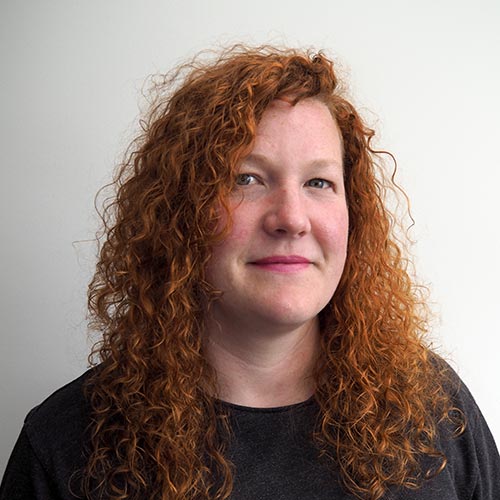Before his trial starts today, February 21 in The Hague, the former Kosovo Liberation Army (KLA) commander has been suspected of war crimes by two other international legal bodies, who did not consider it a priority to try him. Pjetër Shala has been charged before the European Union-backed special tribunal for Kosovo with murder, torture and arbitrary detention allegedly committed in 1999, when he was running a prison facility, in the Kukёs Metal Factory, in northern Albania.
Shala, now 59, has been held by the Kosovo Specialist Chambers (KSC) in pre-trial detention for nearly two years, since he was arrested in Belgium in 2021. He pled not guilty to four counts of war crimes during his first appearance at the court the same year. He joined the KLA in 1998, then led by Ramush Haradinaj, who served as prime minister of Kosovo from 2004 to 2005. Haradinaj successfully fought off charges of war crimes and crimes against humanity before the International Criminal Tribunal for the former Yugoslavia (ICTY).
A witness in Haradinaj’s trial
The little known name of Shala appeared in the indictment against Haradinaj. Prosecutors suspected him to have participated in the killing, detention and torture of several civilians in Albania. He was interviewed twice by the ICTY as a suspect, in 2005 and again in 2007. Later that year, Shala testified as a prosecution witness in Haradinaj’s trial. Prior to his testimony, the presiding judge asked prosecutors if there was any chance that an indication could be brought against Shala. The prosecutor ambiguously said it would be “totally impossible in the present stages”, although “if he was to be interviewed again, he would be interviewed as a suspect”, according to the transcript of Shala’s testimony, heard by the ICTY on 30 October 2007.
“The ICTY focused on the bigger perpetrators,” says Aidan Hehir, a scholar of international relations at the University of Westminster specialist about justice in the Balkans. According to him, Shala was not prosecuted because he was a comparatively low-level commander and the ICTY lacked the resources to pursue every possible defendant.
In 2010, his name surfaced again – without being targeted either – in an indictment of five KLA fighters for war crimes brought by a prosecutor from the European Union Rule of Law Mission in Kosovo, or EULEX, which supports rule of law institutions in Kosovo. The group was convicted of war crimes in 2013 by a Kosovo national court, stemming from the same detention complex in Kukёs.
It’s unclear why Shala wasn’t charged. A 2012 auditor's report described the EULEX mission as "not sufficiently effective." Despite some 3.6 billion euros in funding, the Brussels-backed mission had been unable to fight the endemic corruption and lack of transparency in the judiciary. "There has been almost no progress in establishing the rule of law in the north of Kosovo," the report notes. The mission was described as hamstrung by unqualified staff, bureaucratic red tape and enable to coordinate with other parties, namely the United States.
Fear to talk about the KLA
The historical context of the partially-recognized state has added to the difficulties in bringing charges against ex-KLA members. The KLA was founded in the 1990s to combat mistreatment by Serbians and to many in Kosovo, the KLA is seen as a liberating force whose heroes should be celebrated. Many also who sit in government in the capital Pristina got their start in the KLA.
Protecting the witnesses who want to testify against former KLA members has always been challenging. Carla Del Ponte, the former chief prosecutor at the ICTY, called investigating KLA members as the “most frustrating” of all of the court’s undertakings. “Witnesses were so afraid and intimidated that they even feared to talk about the KLA presence in some areas, not to mention actual crimes,” she wrote in her memoir, "Madame Prosecutor", published in 2009.
It seemed unlikely prosecutions of ex-KLA fighters would be more widespread until political allegiances began to shift and the publication of a now-infamous report by Swiss diplomat Dick Marty alleging, amongst other crimes, organ harvesting by the group. Marty’s report, prepared for the Council of Europe, was published in 2010 and claimed the responsibility went directly to the top, naming Hashim Thaçi the KLA’s former political director. Shala’s name didn’t appear in this report. But it refers to the responsibility of “KLA commanders” at the Kukёs site.
In an attempt to thwart corruption and the informal protection afforded to ex-KLA members, the internationally-backed Kosovo Specialist Chambers and Specialist Prosecutor's Office was set up in The Hague was set up, in 2017, in The Hague and has been staffed with international lawyers and judges, many of whom came from the EULEX mission.
Despite the precautions, the court’s first convictions were for witness intimidation when it convicted two members of the top brass at the KLA War Veterans Organization in 2022. The ex-chair and deputy chair Hysni Gucati and Nasim Haradinaj were sentenced to four-and-a-half years in prison for obstruction of justice for leaking classified documents from the court in 2020.
At the very end of last year, the court handed down its first war crimes conviction, finding another low level KLA commander Salih Mustafa guilty of murder, torture and arbitrary detention for running a prison camp during the conflict. In April, the trial of Thaçi is expected to begin, though the date of the opening has been pushed back at least twice.
There are eight victims participating in the case against Shala. According to the indictment, the victims were civilians, either Serbs who were not participating in the fighting or Kosovo Albanians who were suspected of not supporting the war. Shala has consistently denied all of the allegations against him, from the ICTY to EULEX to the Kosovo Court. “I do not feel that I have committed any crime, except that I have defended my country; I am completely innocent,” he said during his first appearance in court in 2021.
Over two days, the prosecution and the defense are presenting their opening statements. The trial is expected to last until at least the fall.


